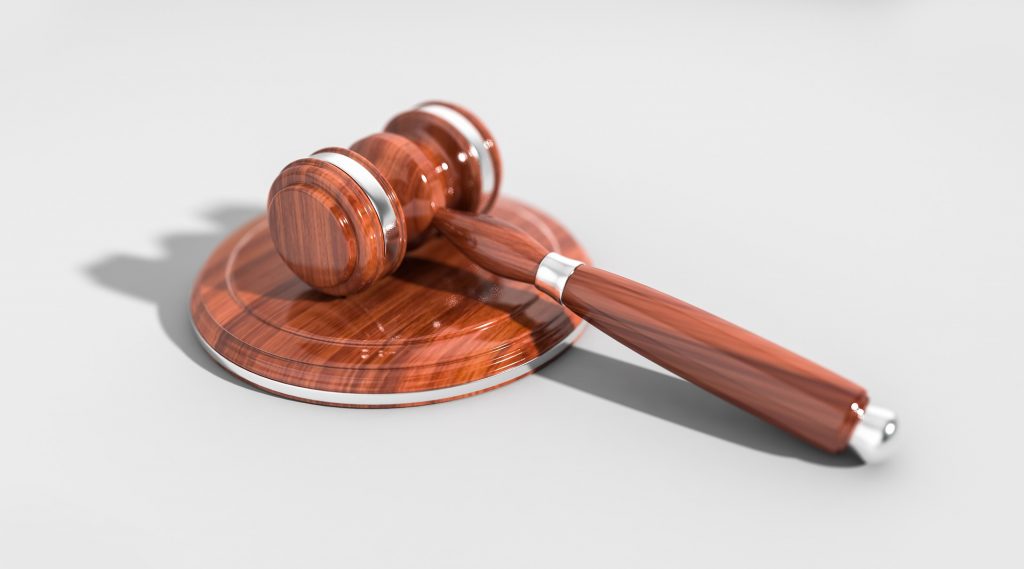State takes issue with document calling on Ireland to rapidly reduce emissions

November 28th 2018
A statement from the UN’s Special Rapporteur on Human Rights and Environment calling on Ireland to rapidly reduce emissions should be deemed inadmissible as evidence in a legal case challenging the State’s climate plan, the High Court heard today.
The statement from Professor David Boyd was submitted to the High Court last month as an exhibit to an affidavit to support proceedings brought against the State by Friends of the Irish Environment (FiE).
FiE’s legal challenge claims that the National Mitigation Plan—one of the main planks in the Government’s climate change policy—does not do enough to reduce Ireland’s emissions and is a violation of Ireland’s Climate Action and Low Carbon Development Act 2015.
Mr Boyd’s statement indicates that the State must rapidly limit growing emissions as it has “clear, positive, and enforceable obligations” to protect against breaches of human rights by climate change.
In his statement, Prof Boyd said that climate change adversely impacts the right to life, a right that the Irish Government is “legally obliged to respect, protect and fulfil”.
“[The Irish State] must reduce emissions as rapidly as possible, applying the maximum available resources. This conclusion follows from the nature of Ireland’s obligations under international human rights law and international environmental law,” he said.

Photo: Qimono
Inadmissible submission
The State has agreed to accept three other documents – the most recent Intergovernmental Panel on Climate Change report and the latest annual review from the Climate Change Advisory Council (CCAC), and the EPA’s latest report on Ireland’s emissions projections – submitted with the affidavit as admissible evidence for the case.
Both the CCAC and EPA reports indicate that Ireland will not meet its 2020 targets and will struggle to meet its 2030 targets as emissions continue to increase.
Counsel for the State, Ms Niamh Hyland SC, told Mr Justice Michael MacGrath, however, said that the State is objecting to the admissibility of Mr Boyd’s statement, largely based on the focus of a section of his statement on climate litigation in other countries, including Pakistan, Colombia and the US.
She said that there is no evidence that Mr Boyd, a Canadian national, has any expertise in the laws of these countries as required under Irish law for such information to be accepted as expert evidence.
Mr Boyd is simply relying on these international cases as “persuasive authority”, Ms Hyland said and argued that he is acting in a “partisan” manner supportive of FiE’s position.
As such, Ms Hyland argued that Mr Boyd does not have the “requisite independence” to qualify as an independent foreign expert in this case.
Even if he did qualify as a foreign expert witness, Ms Hyland said that the court would need to be presented with a sworn affidavit from Mr Boyd.
Thus, the submission of his statement as evidence together with an affidavit from FiE should be deemed inadmissible by the courts.
“It’s so overwhelming not a document that can be admitted under Irish law and that’s why we are challenging at this stage that this document should be excluded,” Ms Hyland said.
Climate change is a threat to all of us, yet the Irish Government’s climate policy is weak and unambitious. We’re taking the Government to court to demand more climate action. We need your support to show the Government that this case is for all of us: https://t.co/hYktPmf6c0 pic.twitter.com/wMNOV34w1i
— Climate Case Ireland (@climatecaseire) May 9, 2018
Qualified expert
Counsel for FiE, Eoin McCullough SC, said that Mr Boyd’s “background and qualifications are enough to qualify him as an expert”, in particular, his current position, his record as an environmental lawyer for over 25 years, and his role in advising various governments.
Mr McCullough said that when one looks at Mr Boyd’s statement, it is purely a statement of facts in relation to international reports, international climate change litigation, and reports on Ireland’s climate record and that there is “nothing inadmissible in principle about this submission”.
He said that it is “revealing” that the State has taken such a “narrow and highly technical objection” to Mr Boyd’s comments on the legal decisions of international bodies and other national courts on the issue of climate change.
He said that it is “hard to see what the problem is here” as the international cases included in Mr Boyd’s statement will be discussed during case proceedings “whether through the mouth of Mr Boyd” or by submission to the court as individual cases.
Mr Justice MacGrath indicated that he will likely give his decision on this issue within the next month, with the case set to be heard in late January 2019.
[x_author title=”About the Author”]







